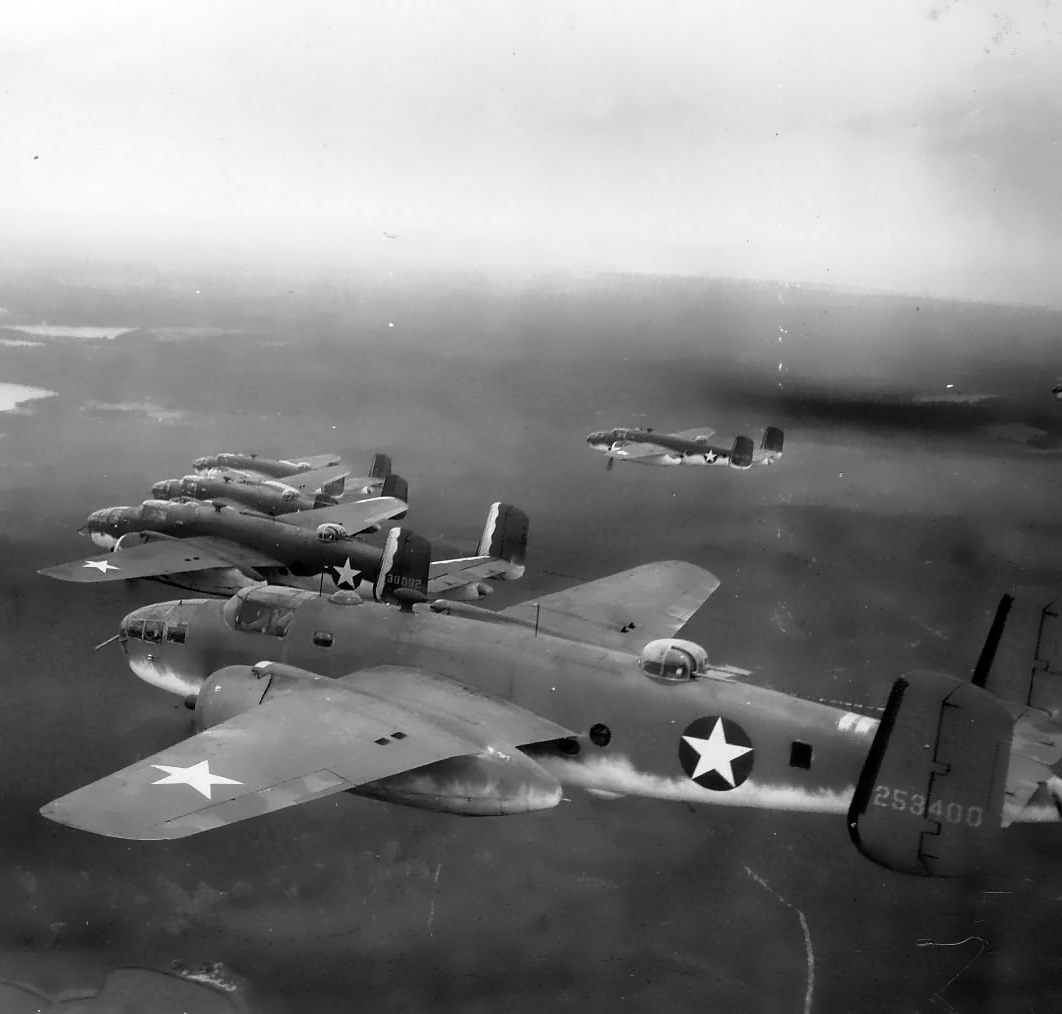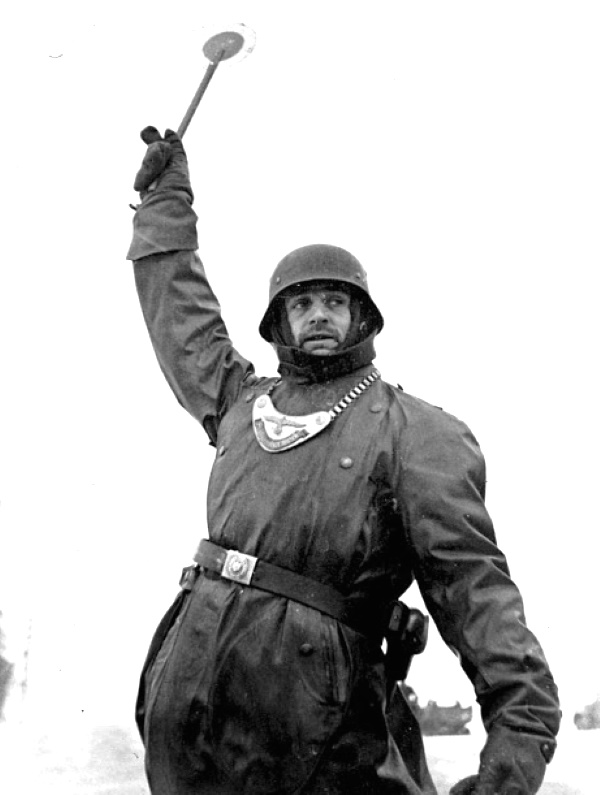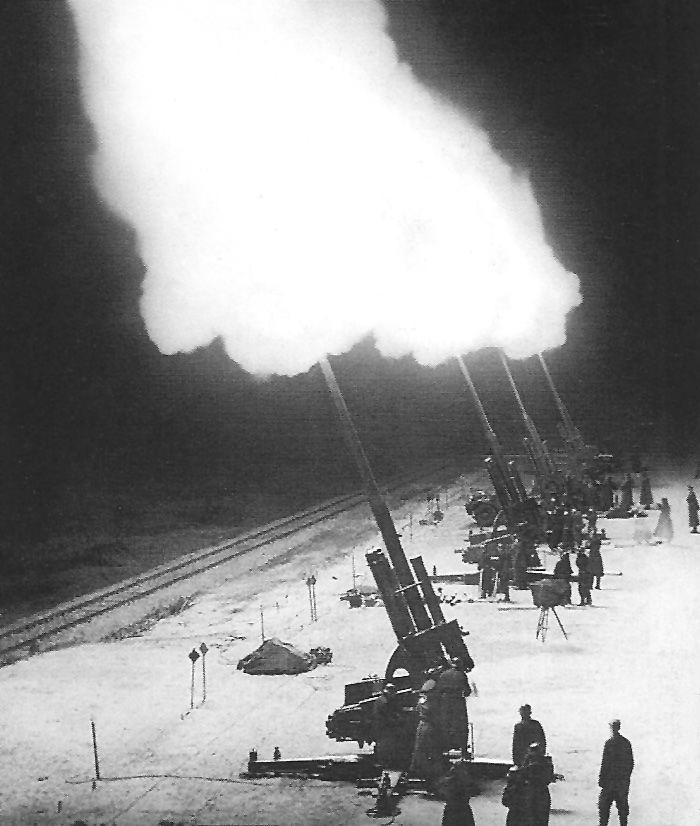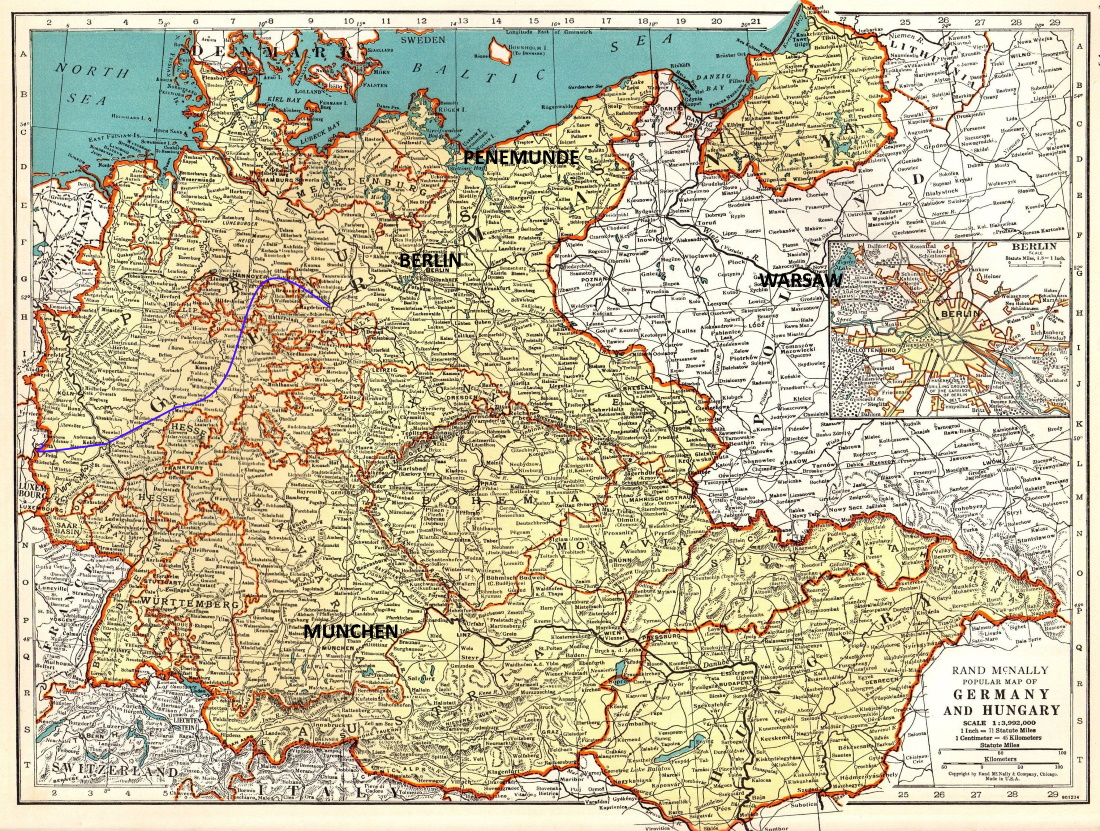If you could just remember that the ultimate goal, not the present discomfort, was all that mattered, it was possible to endure this whole miserable situation. Thoughts of food and warmth and rest dominated our minds, little else mattered. As the clatter of the wheels on the tracks rhythmically passed the time and a kind of hypnotic trance came over the men, we were suddenly alerted to the roar of an engine, louder than the train engine, seeming to come from ahead of us. This shook us from our trance and we realized with renewed fear, one thing we had never considered in our joy of traveling. The one thing we had never been exposed to before, was the reality of an air attack while being imprisoned in a boxcar. We were like rats in a trap and at the mercy of whatever would transpire. The groans of disbelief and fear were loud, and our claustrophobia became unbearable but it was short-lived because almost as soon as we had heard the first plane, a second one came at us in a steep dive with all machine guns spitting fire and bullets everywhere.
Men screamed in agony and pain, some just stood in abject fear and others began to pray aloud. I felt a dull thud on my shoulder, but in the confusion, and fear of another strafing, I paid no attention to it. Suddenly the train stopped, throwing us forward, nearly crushing the men in the front of the car, the doors were thrown open. Men started to detrain, falling out of the door, pushed by those behind them, everyone scrambling out any way they could, trying not to fall on or walk on others but getting as far away from the train as they could. It was only after we were out of the cars and feeling safe that we were aware of how devastating just one pass of an airplane strafing had been. Some men just fell forward and did not move. Others were holding their heads, their sides, their legs, and their arms trying to stem the flow of the blood spurting out or flowing everywhere. Men appeared to be in shock or pain, it was difficult to tell which.
I was suddenly aware that I wasn’t feeling anything in my left arm, nor was I able to lift it. I was sure it had been shot off or that there would be a hole in it – but surprisingly it was there, and there was no blood. All of this passed through my mind in less time than it took to tell it. What had happened was a bullet had come through the panel of the wooden boxcar just above my shoulder height where I had been pressed against the wall, then it deflected upward and hit my shoulder like a sledgehammer, not breaking the skin or even causing it to bleed. Later I realized my shoulder was black and blue and it was a week before I could use it again. Others were not so lucky and a total of 800 men were killed or wounded in that one pass of a plane which turned out to be British, not American as we had first thought. As quickly as we were out of the train we formed our trusty POW made up of men who could still walk or run into position. The planes must have seen us then and realized what happened. They made a couple of low-flying passes without shooting, waggled their wings, and moved on, following the train tracks to the southwest.
 To add to the tragedy of our situation, the train commander would not allow the train to move, kept us well away from it, and could do nothing for the dead or wounded.
To add to the tragedy of our situation, the train commander would not allow the train to move, kept us well away from it, and could do nothing for the dead or wounded.
After keeping us out in the field for an hour he announced that he would again entrain us. To his dismay and I am sure disbelief, not one soldier in our group would even get on the train. He threatened to have us shot but at this time everyone was in such shock, so hungry, tired, and cold, that nobody gave a damn what he did and we told him so. The German guards, some of whom had been wounded, had a conference with the train commander and it was decided to put the dead and wounded on the train and let it continue without the rest of us. While this confab and decision-making was going on, we heard heavy bombers overhead flying to the northeast. We identified them as American B-25s and were jubilant feeling that the war was again continuing in the air and hopefully shortening our captivity time. The planes were at about 30.000 feet altitude and we were not in fear of them as we had been of the fighter planes. At such heights, bombers do not have visual contact with targets and we knew we were not significant enough targets for them anyway. Immediately upon hearing the bombers, we were made aware that we were indeed back in a war zone. German anti-aircraft guns began firing on the bombers. The sky was full of black smoke, exploding shells, surrounding the bombers with deadly accuracy. It was like a bad dream or should I say a nightmare. Here we were standing by a railroad track, still in the shock over our own devastation and there were our planes being blasted literally out of the sky by antiaircraft guns. We were watching them in the sky in awe, barely able to comprehend the significance of it all until we saw one of the bombers explode in mid-air, thousands of feet above us.
Parts of the plane were scattered all over the sky, amidst thousands of bundles of aluminum foil they had dropped to thwart radar detection. We watched one entire wing of an airplane descend to earth. It seemed to be in slow motion as it spun like a propeller. The largest portion of the fuselage of the plane ejected several tiny dots which turned out to be those of the crew who managed to free themselves. As they drifted down they were targets for ground snipers and some were unlucky enough to be caught in the ack-ack fire of the anti-aircraft guns. A couple of men made it down and were immediately taken into custody and added to our group of prisoners. They were probably lucky because many airmen in similar distress had been taken by a hostile civilian population who had just undergone a bombing and were very angry and would beat or kill the airmen without compassion. While all of this was happening I couldn’t help but wonder if my brother Bob, who was in the Air Corps flying missions in this area, might have been up there. I learned later that the chances were good that he had been and that while flying missions and knowing I had been captured he would often drop a package of clothing, socks, gloves, and canned foods, in a futile hope that I might somehow get it. Amidst all of this, I was feeling sorrier for the poor men in the planes who were sitting ducks for anti-aircraft fire than I was for those of us relatively safer on the ground.
The din of explosions northeast of us indicated that we were probably not too far from an important town or possibly a large city and we had hoped that perhaps we could still get to some kind of civilization soon. By this time we didn’t know where we were or how far we had come from the entraining point. We did know that we were heading generally east and the town of Magdeburg was mentioned by the guards. We walked for a few miles following all of the events of the day and were bedded down as usual, on the ground, with nothing to keep us warm but the proximity of another soldier. We were near a farmhouse and the guards who were not actually on duty were bedded down in a nearby barn, having eaten a fairly good meal prepared by an unwilling farm woman. I say unwilling because in late 1944, rations of food were getting very short in Germany and the appearance of a couple hundred guards and prisoners was not a welcome sight.
 After finishing their meals, some of the more compassionate guards would offer any nearby prisoner the scraps of food from his plate. Not many prisoners were lucky enough to be that nearby, and I for one always seemed to be in the wrong place or too late in the right place. Arising at dawn and continuing our march, it wasn’t long until Magdeburg loomed into view. It was a fair-sized town and showed the scars of having been bombed, with some whole blocks of rubble still in evidence where old-style buildings once had stood. The streets of the town were fairly wide and people were walking, probably to work; occasionally shouting an obscenity at us or using what was to be often heard by us, the phrase, ‘American gangsters from Chicago’.
After finishing their meals, some of the more compassionate guards would offer any nearby prisoner the scraps of food from his plate. Not many prisoners were lucky enough to be that nearby, and I for one always seemed to be in the wrong place or too late in the right place. Arising at dawn and continuing our march, it wasn’t long until Magdeburg loomed into view. It was a fair-sized town and showed the scars of having been bombed, with some whole blocks of rubble still in evidence where old-style buildings once had stood. The streets of the town were fairly wide and people were walking, probably to work; occasionally shouting an obscenity at us or using what was to be often heard by us, the phrase, ‘American gangsters from Chicago’.
The most memorable sight and also the most heartbreaking was seeing a large plate glass window in a butcher shop with frankfurters piled up in it and we were just marched by it. The unfairness of it all. It was like rubbing our noses in our plight and yet I can’t believe that this was done on purpose or with malice or forethought. Magdeburg came and went and we saw the city fade behind us as we now headed east, south of Berlin, toward Warsaw, Poland. We were told that there was an Oflag (a camp for officers) there and that we were to be kept there for the duration of the war.
Warsaw and the End of the Trip – No Way!
Being happy-go-lucky Americans and very optimistic, we figured that the worst had happened to us and now the march to the east and Warsaw would be just something to get out of the way – how wrong we were. We were not really sophisticated enough in the ways of war and fortune to realize that we were in a unique position, being able to see a country go down in defeat, getting a first-hand view of what the Germans went through as they saw their towns destroyed, their homes threatened and often bombed out from under them and feeling the wrath they had toward us when they saw or learned that a loved one was hurt or killed. I remembered the reactions of my own men before we were captured when they learned that a brother of one of our men was killed the day before. They were ready to maim and kill the next German soldier captured and it took a direct command order to stop this kind of senseless killing.
We would be passing through areas from which the Germans were firing their infamous V-1 and V-2 rockets aimed at the Allies and Britain killing soldiers and civilians indiscriminately. We would see the change in the attitude of the German people toward their leaders and their lack of response to Hitler’s impassioned speeches on the radio after it was evident that defeat was imminent. As these events unfolded I never ceased to be aware of the unique opportunity afforded by all of the rare insights to be gained in being behind enemy lines and fluid in the situation. We could hear radios blasting out Hitler’s voice imploring his people to fight to the end, demanding loyalty from them, promising success of the war effort but saying it was only with the full cooperation of all German people working in concerted efforts that they were to thwart the enemy. He assured them that he would be in Berlin, directing all war efforts, There was mixed reaction on the part of the people hearing these broadcasts and some even made fun of his hysterical voice and the tone of his speeches.




















